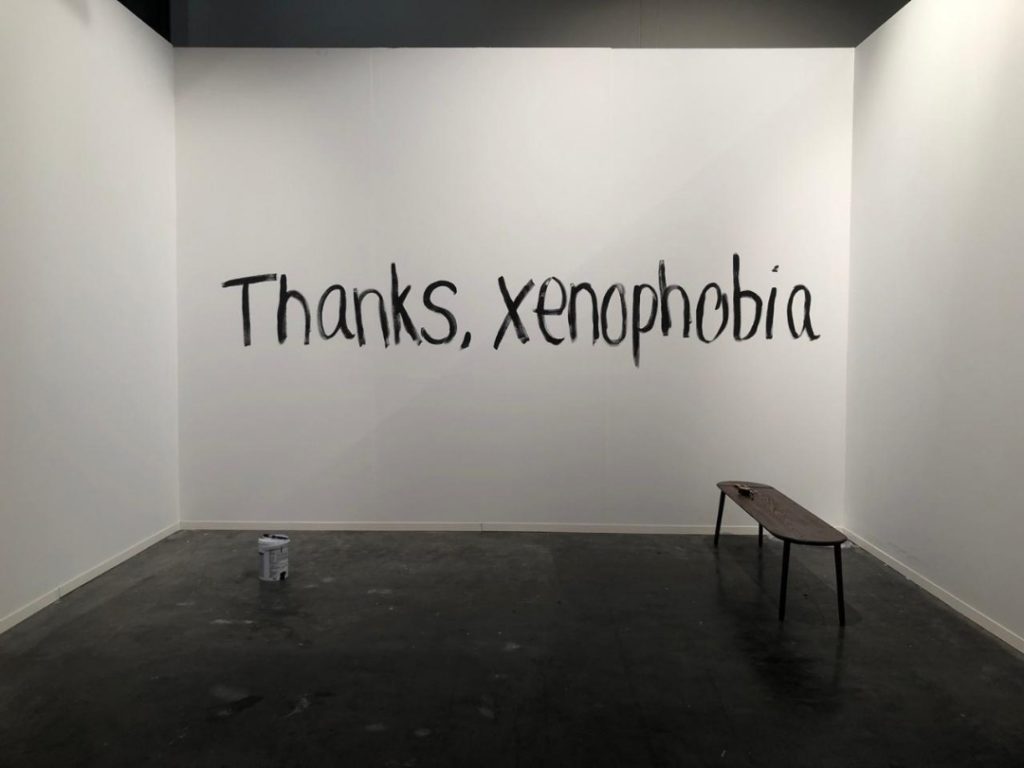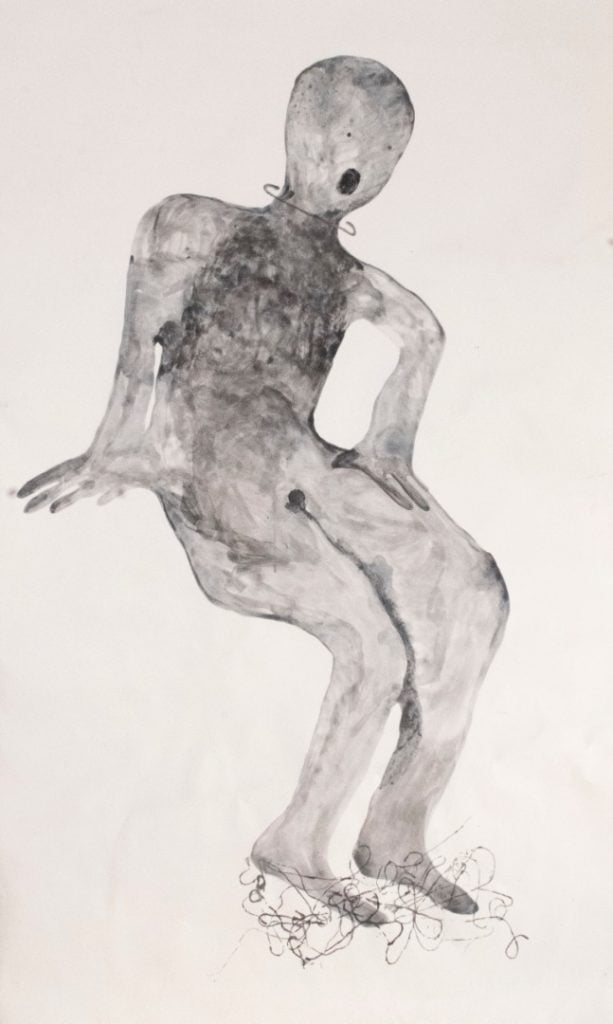Art Fairs
After a Wave of Deadly Xenophobic Violence in South Africa, Nigerian Galleries Have Opted Not to Attend a Johannesburg Art Fair
But a work in their booth by Sheila Chukwulozie imparted a powerful message to fairgoers.

But a work in their booth by Sheila Chukwulozie imparted a powerful message to fairgoers.

Naomi Rea

Amid the bustle of Johannesburg’s FNB Art Joburg art fair, which opened today in the swanky neighbourhood of Sandton, one booth is conspicuously empty. Large black letters written across a white wall convey the missing dealers’ message: “Thanks, xenophobia.”
The galleries meant to be occupying the booth, 16/16 and hFactor, both from Lagos, Nigeria, have chosen to stay home because of a spate of deadly attacks on foreign-owned businesses in South Africa. According to the Economist, at least 12 people have been killed as shops have been looted and burned.
Amid the escalating tensions, a private individual has offered 600 seats on his private airline to Nigerians looking to leave the country. At least one Nigerian journalist was denied a visa to visit the fair. Meanwhile, one block from the fair, other protesters are demonstrating against the government’s lack of action to combat gender-based violence. In the past year, 2,771 women were murdered, according statistics released by the South African Police Service last Thursday.
The evocative statement in the booth comes from Sheila Chukwulozie, a Nigerian artist who previously lived in South Africa for two years. Because she was not on site to produce the work, it was completed in collaboration with representatives from the South Africa-based Stevenson gallery, who were on the ground at the fair.
The phrase was conceived in response to a headline in the South African newspaper The Star that read: “Nigerians Flee SA.” A copy of the paper was displayed on the floor of the booth.
“When [16/16 gallery founder Tushar Hathiramani] mentioned that he wasn’t sure whether he would make it to South Africa, I told him not to go,” Chukwulozie wrote in a statement about her work.

One of the works that would have been featured at the booth of 16/16 & hFACTOR. Yadichinma Ukoha-Kalu, limbo, (2019). The single edition is available for R36500/$2,500.
“The first time I applied for my South African, visa they had guards come out with a horse whip [to] whip the Nigerians who weren’t sure why it was taking so long to open the gate. The second time we came back, the security had sprayed tear gas.”
The anti-Nigerian sentiment is not new to South Africa. Anti-foreign protests claimed dozens of lives in 2008 and 2015.
Yet one Lagos-based gallery, Rele, did end up making it to the fair. “Nobody wins in a war. Everybody loses,” the senior manager at the gallery, Kehinde Afolabi, tells artnet News.
“It’s unfortunate and a big shame that we as Africans would do that to ourselves,” Afolabi says. “I can’t explain it, but what I know is that it is about education. It’s important to learn about other peoples’ cultures, and to understand each other. We made it here, and lots of South Africans have come to the booth and said they are happy to see us, and they keep apologizing for what is happening.”
Liza Essers, the owner of South Africa’s Goodman Gallery, says the xenophobia is another expression of encroaching worldwide ultra-nationalism driven by collapsing economies.
“Conditions like economic recessions and employment difficulties are triggering violence against refugees and foreigners because there is a perception that jobs are being taken away [from nationals],” Essers says.
According to the Mail & Guardian, South Africa has a 29 percent unemployment rate, with 30 percent of the country having no access to running water. In addition, the country is now home to some 2.5 million refugees looking for work.
As Chukwulozie quotes the late Toni Morrison in her statement: “This is precisely the time when artists go to work. There is no time for despair, no place for self-pity, no need for silence, no room for fear. We speak, we write, we do language. That is how civilizations heal.”
At the fair, her poignant unique work is for sale for $10,000.